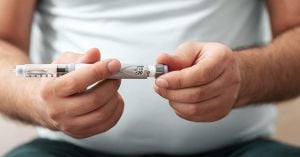Emerging from the recent political upheaval surrounding the 2024 election, there’s been a notable surge in the demand for emergency contraception across the United States. With speculation about changes to reproductive health policies looming under the potential return of Donald Trump to office, many women are not taking any chances. They're stockpiling emergency contraceptives, including the morning-after pill, to safeguard their reproductive health amid increasing uncertainty.
Online sales of emergency contraceptives have reportedly exploded since the election. Companies like Wisp, which provides telehealth services for sexual and reproductive health, witnessed emergency contraception sales soar by approximately 1,000% just within one day of the election results. According to Wisp’s CEO, Monica Cepak, new patient sales shot up as much as 1,650%, demonstrating the urgency many feel to obtain these medications before any possible restrictions arise.
At Winx Health, another reproductive health startup, the numbers tell a similar story. Their morning-after pill, "Restart," experienced a 315% increase the day following the election, which equates to seven times more units sold compared to the week before. Winx co-founder Cynthia Plotch noted, "Things skyrocketed immediately," emphasizing how the expected political changes are translating to actual increases in demand.
What seems most concerning for many potential buyers is not just the political climate, but the anticipation of legislative changes inhibiting their access to these contraceptives. Women across the country are opting to stock up, illustrating their proactive approach against potential shortages or restrictions. Beatrice Barba, a mother of two from Los Angeles, has also taken steps to order both mifepristone—often used for medical abortions—and morning-after pills. Despite living in California, where abortion remains legal, the growing demand and concerns about the future of access prompted her to take action.
Compounding these fears is the fact many regions have already restricted access to reproductive health services. For example, various states have clamped down on the distribution of abortion pills, with Wyoming being the first to ban mifepristone, albeit pending legal challenges. The restrictive policies implemented post-Roe v. Wade have amplified anxiety about accessing healthcare, driving women like Brynn from Oklahoma to lobby for others via social media to grab emergency contraceptive pills now, rather than risk running out.
The trend of increased interest isn’t just limited to emergency contraceptives. Searches for terms related to abortion and contraceptives have surged since the election results. Following Trump’s potential return to office, online searches for questions such as “Is the morning after pill legal?” increased by 700%, demonstrating how fear has prompted not only action but inquiry.
Healthcare professionals have also noted significant changes with patients requesting access to longer-lasting contraceptives, like IUDs, especially before Trump potentially resumes office. Dr. Clayton Alfonso, an obstetrician-gynaecologist, shared how he’s received multiple requests for IUD placements and permanent sterilization from anxious patients aiming for precautionary measures. Indeed, since the Supreme Court's Dobbs decision, there has been much unease among patients, many feeling compelled to act decisively.
Understandably, the ripple effects of Trump's policies mean these changes will not just impact abortion access but could extend to overall reproductive healthcare. Reflecting on strategic plans like Project 2025—developed by conservative think tanks and outlining significant changes to abortion and contraception access—experts worry about the widespread ramifications of such governance. Amy Friedrich-Karnik from the Guttmacher Institute warns, "When you attack one piece of reproductive health care, it really has a ripple effect," indicating the interconnected nature of reproductive services.
The stockpiling trend raises important questions about the accessibility of medications like Plan B. Experts contend it’s mostly safe to stockpile these medications, provided the pills are within their shelf life, typically around four years. Dr. Jane van Dis emphasizes the importance of having emergency contraceptives readily available, labeling this practice as “disaster preparedness.” Storaging necessary medication could help curb the imminent concerns surrounding possible access issues during political shifts.
Nevertheless, the flood of orders is causing some expected complications. Some pharmacies, noticing the heightened demand, are placing limits on the number of emergency contraceptive packs customers can buy at once. Wisp has addressed this concern by offering multipacks, aiming to empower women to take control of their reproductive health. They are reinforcing the message of proactive healthcare, as uncertainty continues to mount around reproductive rights.
This phenomenon—women exercising their autonomy and agency over their reproductive health amid looming uncertainty—marks not just a trend, but perhaps shifts societal perspectives on independence and preparedness. Be it through social media encouragement, enhanced online accessibility to products, or community approaches like Winx’s "Restart Donation Bank," women are actively seeking solutions and support networks.
Based on current trends, if demand continues to rise, companies are preparing to ramp up operations to meet consumer needs. For example, as healthcare companies work closely with pharmacies and organizations aligned with their mission, there’s hope to maintain what access remains and potentially expand initiatives to promote reproductive health awareness and accessibility.
The patterns observed post-election raise fundamental concerns about the future of reproductive rights. With many women turning to stockpiling as the way forward, it becomes clear they are taking matters—and their health—into their own hands. The narrative is shifting; empowered and informed women are taking action to protect their reproductive choices for themselves and the generations to come.



